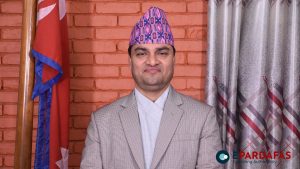
Petition Urges Halt to TikTok Operations in Nepal Citing Concerns Over Content
A formal petition has been submitted to the Ministry of Communication and Information Technology, urging the suspension of the mobile application, TikTok, within Nepal’s borders.
Yuvraj Safal, the coordinator of Nepal Samajwadi Morcha and an active TikTok user, lodged the appeal. Safal, who has been frequently broadcasting live on the platform, asserted that TikTok is operating without proper authorization in Nepal. He highlighted concerns related to the proliferation of abuse, defamation, obscenity, and criminal activities facilitated through the app.
In his plea, Safal called upon the Minister of Communications, Rekha Sharma, to temporarily shut down TikTok. He emphasized the necessity for TikTok to obtain official permission before continuing its operations in Nepal. Additionally, he demanded the enforcement of TikTok’s operational standards and codes of conduct, alongside measures to prevent the use of fake profiles and bring the platform within legal bounds.
Safal also raised the issue of TikTok’s financial transactions, claiming that the platform has not contributed revenue to the state despite substantial financial activity associated with TikTok-based games. To address this, he suggested that a percentage of the winnings earned by users on TikTok games be directed towards the state treasury.
The core contention of the petition lies in the assertion that TikTok, in its current state, fosters actions of abuse, prostitution, and social disruption, including incidents of religious, caste, and communal violence. Until these concerns are adequately addressed and managed, Safal and the petitioners are demanding a suspension of TikTok’s operations in Nepal.
The submission of this petition highlights the ongoing debate surrounding social media platforms and their influence on societal values and norms. The Ministry of Communication and Information Technology is expected to review the petition and address the concerns raised by the petitioner and the broader public.













Comments